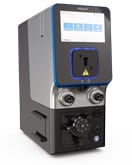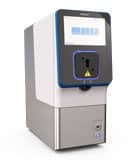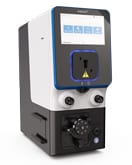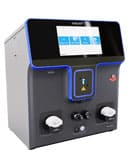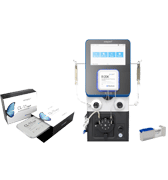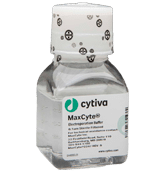Scientific Brief
Multiplex CRISPR-mediated Gene Editing Towards the Creation of a Universal CAR T Cell
Abstract: Non-viral Engineering Approaches for Creating TCR Knockout Cells and Expressing Synthetic T Cell Receptors
Manufacturing of CAR T cells from autologous patient cells continues to face a multitude of challenges which ultimately can limit the treatable patient population and lead to unpredictable and highly variable clinical outcomes. Researchers are looking to sophisticated gene editing to engineer potent CAR T cells that are resistant to the immunosuppressive tumor microenvironment, ultimately using a universal cell source derived from healthy human cells. Here, we present data for the non-viral delivery of mRNA and CRISPR-Cas9 machinery using MaxCyte Flow Electroporation® technology for knockout of endogenous TCRs. We demonstrate high efficiency delivery with low primary cell toxicity at clinical-scale — all critical parameters for commercial production of quality, clinically-active genetically engineered cells.
Case Study


Optimization of T Cell RNA Delivery & Multiplex Gene Knockdown. Primary human T cells were electroporated using the MaxCyte GTxTM and transfected cells examined by flow cytometry. A) T cells were electroporated with mRNA encoding GFP at various electroporation energies. Medium and high energy protocols produced 100% GFP+ cells with cell viabilities >70%. B) T cells were electroporated with Cas9 mRNA and gRNA targeting CD7 alone or gRNAs targeting CD7 and TRAC. CD7 single knockdown and CD7/TRAC dual gene deletion efficiencies were 94%. Data courtesy of Washington University in St. Louis.
Summary
- Non-viral engineering enables rapid development of next-generation therapies — such as endogenous T cell receptor knockout or disruption of checkpoint inhibitors — with the benefit of simplified, more cost-effective manufacturing.
- MaxCyte Flow Electroporation technology co-delivers a diversity of payloads including mRNA, sgRNA, RNPs, and plasmid & minicircle DNA providing flexibility for sophisticated, non-viral engineering including:
- Transient mRNA expression
- Nuclease-mediated gene editing (CRISPR, TALEN, ZFN)
- Transposon insertion (Sleeping Beauty®, piggyBac®)
- MaxCyte clinical scalability and regulatory compliance provide for streamlined clinical translation of new therapies.
- The high efficiency and low toxicity of MaxCyte Flow Electroporation provides for strong expression of exogeneous genes such as CARs and/or high gene disruption frequencies that bolster therapeutic efficacy.
- Development and optimization of MaxCyte Flow Electroporation for new cell types and payloads is a rapid, straightforward process.
